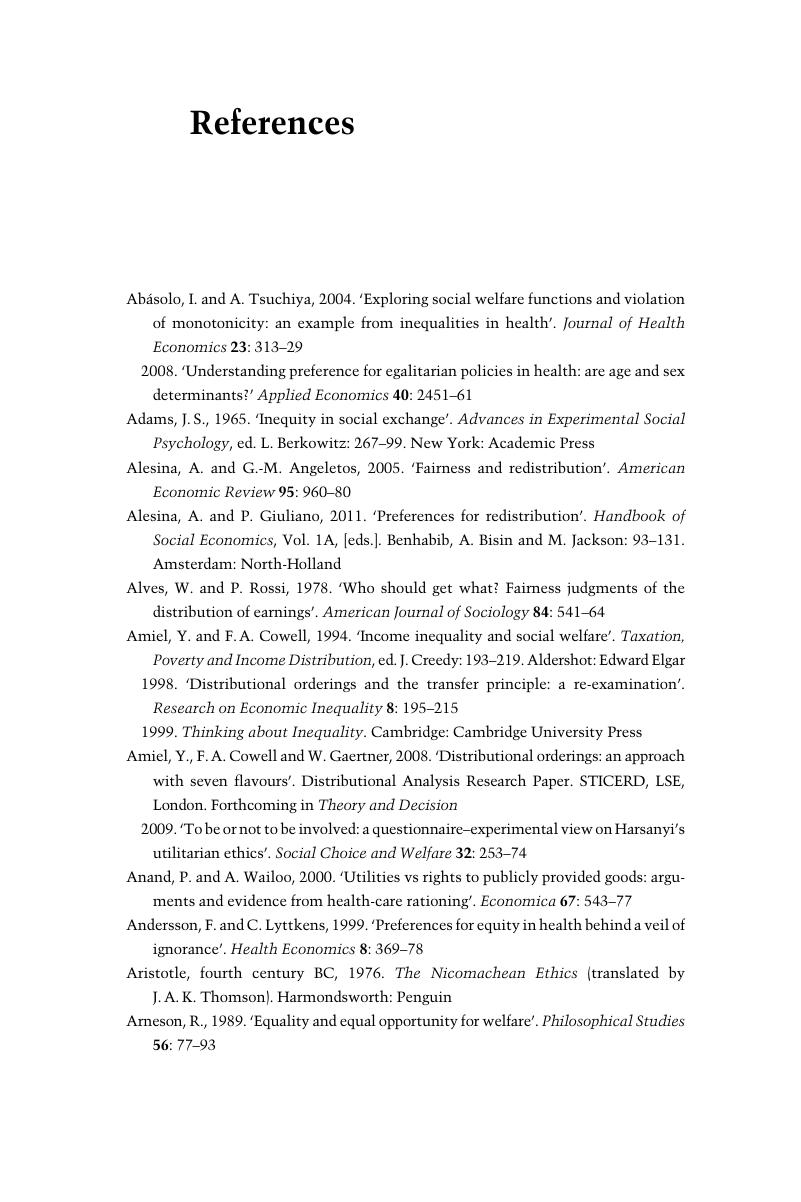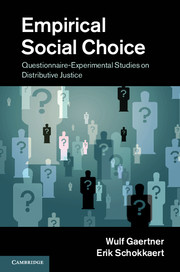References
Published online by Cambridge University Press: 05 January 2012
Summary

- Type
- Chapter
- Information
- Empirical Social ChoiceQuestionnaire-Experimental Studies on Distributive Justice, pp. 201 - 209Publisher: Cambridge University PressPrint publication year: 2011



